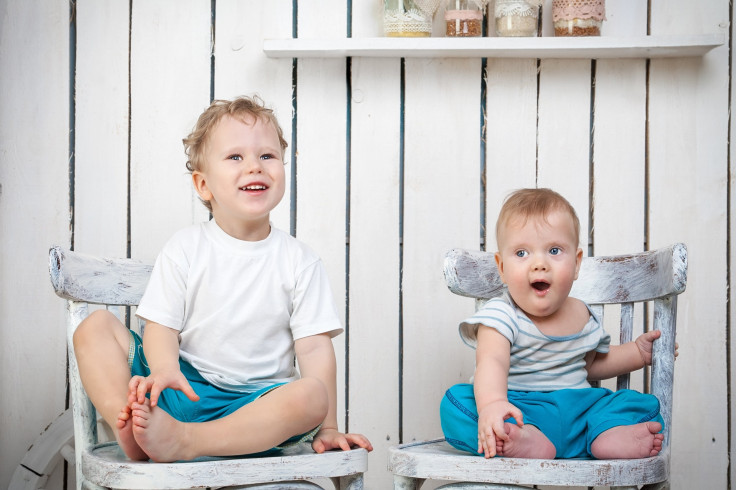When It Comes To Picking Up A Second Lanuage, First-Born Kids Are Just Plain Better

Hand-me-down clothes might not be the worst part of having an older sibling, according to a recent study of about 1,200 bilingual children in Frontiers in Psychology. They might just make you worse at learning a second language.
Sifting through the data amassed by the Zweitspache (Second Language) project, Swiss researchers examined the survey responses of immigrant parents on their children’s language skills. They then attempted to determine what influence the presence of siblings might have on the children’s ability to understand and use rudimentary German phrases; German being the officially recognized language of the Swiss canton, Basel, where the study took place. Specifically keying on children between the ages of two and a half to three, before they’re sent off to elementary school, the researchers found that there was a small but noticeable sibling effect, even after controlling for factors like sex, the parents’ own grasp of German, and the number of children’s books in the home. "The more siblings a child had, the lower his/her German skills," the authors concluded.
This effect was only slightly worse with each extra sibling; it was the presence of the first-born sibling that was the most detrimental for the child's language comprehension. And as the researchers predicted, it was generally the oldest born who fared the best, possibly because they had the most resources and attention available to them. "The results matched the resource dilution model and confirmed that first-born children possess better second language skills than later-born children, regardless of the number of siblings," the authors wrote.
These results might not seem all that surprising to beleaguered middle children around the world, but as the authors explain, there’s actual little conclusive research on how the order and number of siblings impacts the learning ability of children. Some studies have found little significant effect, while some have even found that older children boost their siblings’ secondary language skills, by acting as a bridge between the parents’ native language and that of their new home. Yet others have shown that first-born children who speak only one language often reach learning milestones quicker, like using personal pronouns. This might be because first-borns are more encouraged to express themselves and are unknowingly invested in more by their parents, a conclusion this study seems to validate.
Still, with such a mixed bag, the study, while impressive for its relatively large sample size, isn’t the nail to any coffin, at least when it comes to proving what makes for a better learning environment. As the researchers note, immigrant families, whether in the United States or Switzerland, face their own unique challenges in raising their children, often being poorer and less equipped to access useful educational programs.
And it isn't all bad news for the perceived runts of the family, as the authors also found that the sibling gap effectively disappeared when children were provided early education. "The inclusion of the mediator length of attendance in an education institution reduced the direct effect of the number of siblings on the second language by 84 percent," they found. Since immigrant families might be reliant on those programs to better teach their children an unfamiliar language, this finding partly explains why first-borns learned German faster, as they might spend more time in these programs than their later siblings due to financial burdens.
But it also provides policymakers a concrete way to ensure that the children of immigrant families, no matter what order they came in, aren’t left lagging behind. "[I]t seems all the more important that immigrant families with many children are financially supported so that their children are offered the best opportunities possible for their academic careers," the authors concluded.
Hopefully their results will highlight the fact that, when it comes to education, there’s no need for sibling rivalry.
Source: Keller K, Troesch L, Grob A. First-born siblings show better second language skills than later born siblings. Frontiers in Psychology. 2015



























